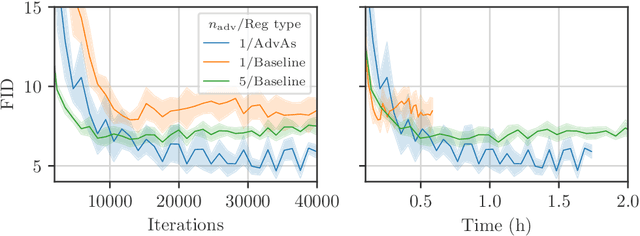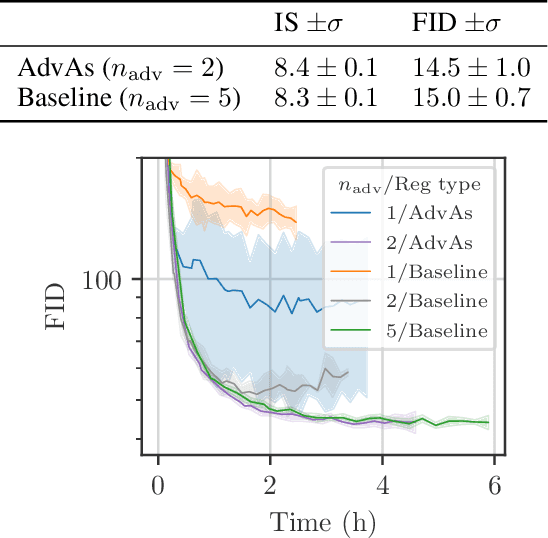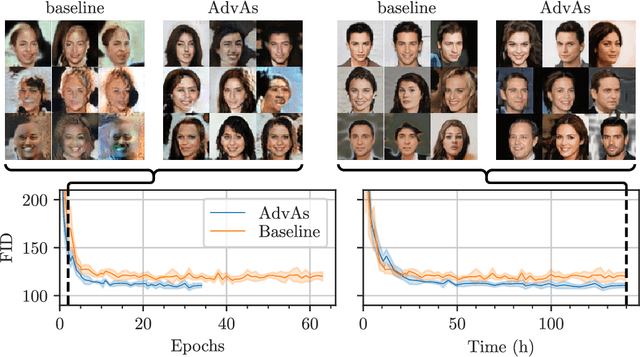Assisting the Adversary to Improve GAN Training
Paper and Code
Oct 03, 2020



We propose a method for improved training of generative adversarial networks (GANs). Some of the most popular methods for improving the stability and performance of GANs involve constraining or regularizing the discriminator. Our method, on the other hand, involves regularizing the generator. It can be used alongside existing approaches to GAN training and is simple and straightforward to implement. Our method is motivated by a common mismatch between theoretical analysis and practice: analysis often assumes that the discriminator reaches its optimum on each iteration. In practice, this is essentially never true, often leading to poor gradient estimates for the generator. To address this, we introduce the Adversary's Assistant (AdvAs). It is a theoretically motivated penalty imposed on the generator based on the norm of the gradients used to train the discriminator. This encourages the generator to move towards points where the discriminator is optimal. We demonstrate the effect of applying AdvAs to several GAN objectives, datasets and network architectures. The results indicate a reduction in the mismatch between theory and practice and that AdvAs can lead to improvement of GAN training, as measured by FID scores.
 Add to Chrome
Add to Chrome Add to Firefox
Add to Firefox Add to Edge
Add to Edge